One of my cherished travel memories would have to be from the month I spent working as an archaeological dig volunteer in Spain.
It was a long and dirty month, but also a month where I could do more than hostel hop.
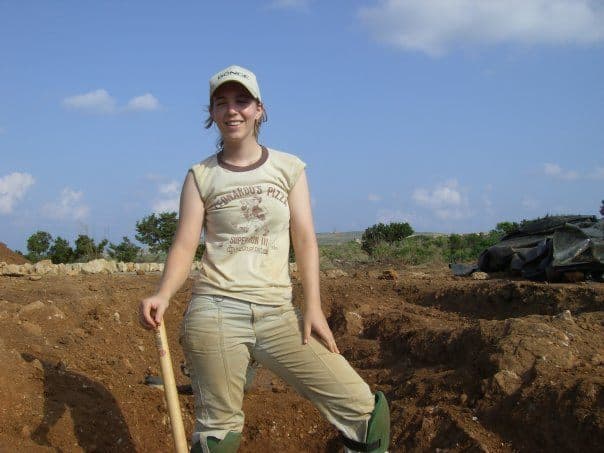
I made great friends, connected with my surroundings, and gave my brain and body a good workout.
As stated in my alternative travel ideas story, archaeological digs offer the general public another way to see the world, one perfect for history buffs or those who like to get their hands a bit dirty.
Most of the digs are for students studying anthropology or participating in archeology programs to get hands-on experience. But many archaeological sites around the world offer volunteer opportunities — albeit for paid volunteers.
At least it's good to know that the funds you put into it generally help cover your room and board and fund the dig itself.
Table of Contents
Frequently Asked Questions
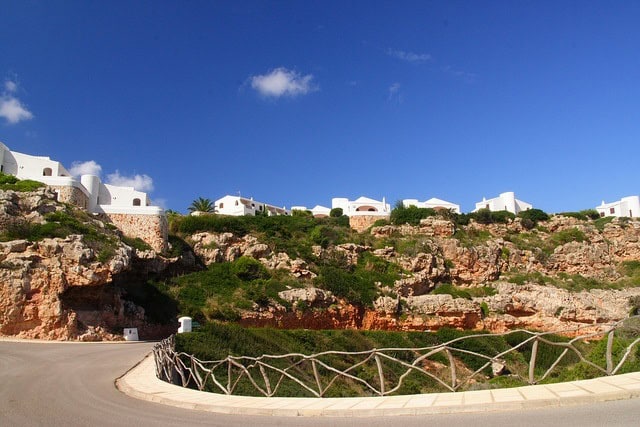
Where can I volunteer on an archaeological dig?
Volunteer positions on archaeological digs are available worldwide and open to people of all ages.
According to the Archaeological Institute of America, the website I use to search for fieldwork availability, opportunities are currently offered in Israel, the UK, the USA, Macedonia, Greece, Romania, Peru, Bulgaria, Italy, Belize, Australia, Ireland, Spain, Mongolia, Cyprus, and Ecuador.
Digs will typically run during the summer since they're organized by universities or with the hopes of having university students along.
It is essential to remember this, as summer heat in many locations can be overwhelming.
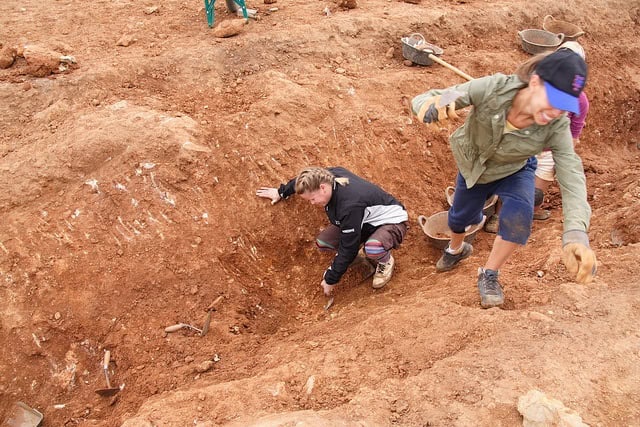
What can I expect on an archaeological dig?
Well, for one, this is not a vacation, so expect hard work. You'll be in the pits with college students getting practical experience and professional archaeologists, so you better believe they take this seriously.
You can expect a lot of early mornings.
When I worked for a month as a volunteer on an archaeological dig in Spain, we had a 45-minute bus ride to the site each morning.
This was before we began our hours of digging, generally done in the early morning hours to avoid the peak of the day's heat.
You can expect to get dirty.
Don't pack up all your nicest clothes because, by the end of the term, you will probably want nothing more than to chuck your work clothes in the bin.
There were work days on my dig when we were covered from head to toe in mud after a few rainy days at the archaeological site. And if it wasn't mud, it was just sweat.
You can expect to learn a lot.
You should be fine if you take part in a dig marked as one for beginners, as no previous experience may be required.
Plus, the fact that they act as field schools for many archaeology students means the people running them are teachers. Ask away and learn!
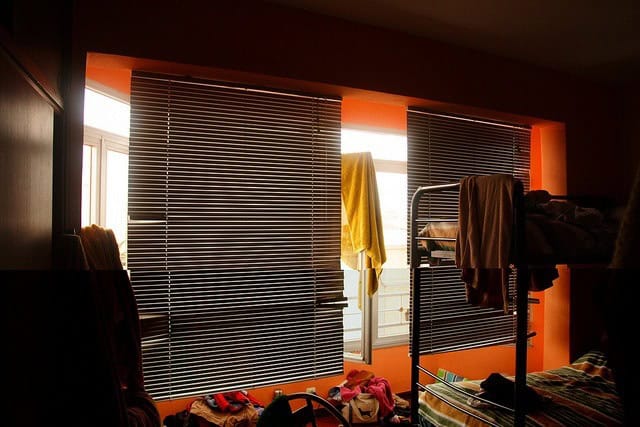
What about accommodation?
Accommodation options vary for archaeological dig volunteers, so research before signing up for fieldwork opportunities.
When I did my dig in Menorca, Spain, we all lived in a four-bedroom apartment with up to six people in a room (much like a hostel).
Other archaeological projects will have participants stay in college dorms, hotel rooms, apartments, or even a tent.
Archaeology volunteer programs can vary from comfortable to highly rustic, just as the price will vary.
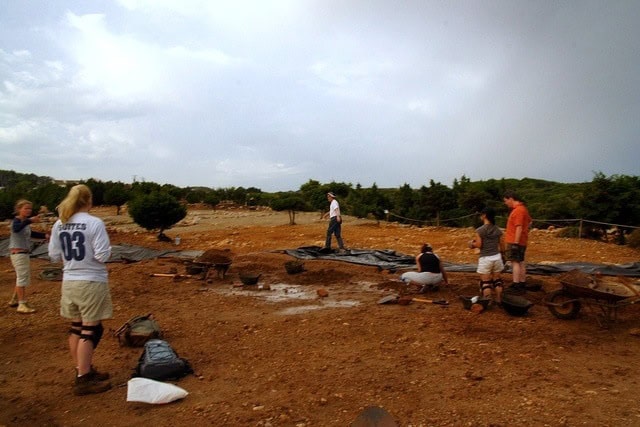
How do I pack for an archaeological dig?
The dig program you are participating in will most likely provide specific tips, like whether or not you need to bring a sleeping bag or tools.
For the most part, you can expect to need knee pads and heavy-duty gardening gloves. Closed-toe shoes are great if you'll be working with pick-axes.
Clothing and hats for sun protection are essential as you'll be out for hours, and a poncho or rain jacket might come in handy on wet days.
Another tip would be to bring some bug spray and a reusable water bottle.
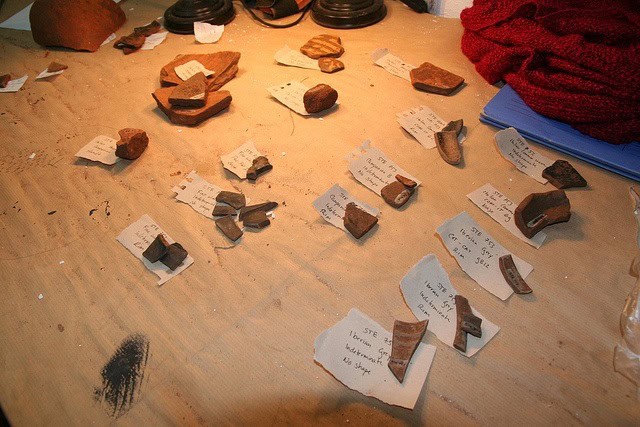
How much does it cost to participate in a dig?
Depending on the location, amenities, and length of time, the cost will vary for an archaeological dig volunteer.
Digs typically last around two weeks, but month-long and summer-long courses are available. A typical month can run anywhere from $1,500 to $3,500.
If the price of a dig seems high, you might want to consider that many will include all meals and your accommodation — plus some free knowledge and group tours along the way.
So, a dig might not be a form of budget travel. Still, it is a different form of experiential travel, allowing participants to immerse themselves in a place, learn about its history, and perhaps even uncover something worthy of sitting in a museum.
Related: Las Vegas Dig This
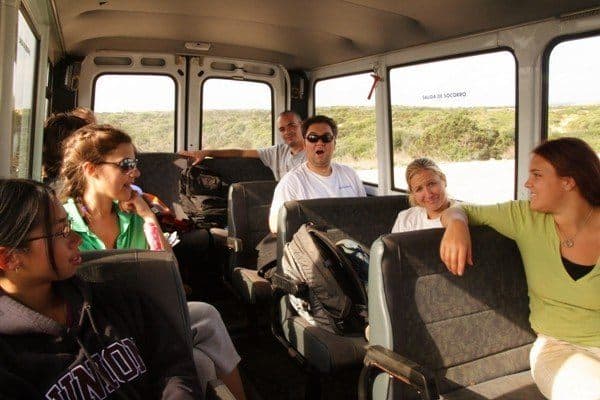
Will I have fun?
I loved my time as a volunteer on the archaeological dig in Spain, but just like with any group tour, your fun will depend on several factors:
- The other dedicated volunteers in the group.
- Your location, amenities, and comfort level.
- The amount of physical activity.
- The amount of free time given.
- Your interest in the subject.
- How you get along with the dig directors and volunteer coordinators.
Many programs will include group tours to other parts of the region, so archaeology volunteers aren't seeing the same thing day in and day out.
When I was in Menorca, we went on a weekly excursion to different sites on the island.
I highly recommend this to travelers who tend to get lost in museums on the road or those who want to take in the vibe of a destination while still feeling like they are being productive.
Brooke lives a thrifty lifestyle so that she can travel the world at every possible opportunity. Find more of her writing on her website: Her Packing List. Or follow her on Twitter.
Planning a trip? Go Backpacking recommends:
- G Adventures for small group tours.
- Hostelworld for booking hostels.

Danuta
Thursday 11th of August 2016
After having kids & grandkids just want to do something I always want it do , thank you for awesome info
Christopher
Thursday 9th of June 2016
Do you know if there are any archaeological opportunities that offer free room and board in exchange for the volunteer work? I am a social sciences student at a private university, and I can foot travel expenses but the extra cost while there is a little too much for my budget.
Olivia-Petra Coman
Tuesday 3rd of April 2012
This is awesome, Brooke! As a History student, I'm really into archaeology, too, and this really seems like an opportunity to learn a lot in the field.
David Ward
Thursday 8th of March 2012
Great read. Glad I found this through twitter. I am trying to do some research on this, as I too am going on this same archaeological dig in Menorca, Spain. However, aside from being immersed in the dig, were you able to travel the cities on the island and sort of "look around", if you will? I am very excited about this trip! I am going in early May, when did you go, Brooke?
Jade - OurOyster.com
Monday 5th of March 2012
Wow Brooke! This sounds amazing. I am totally adding this to my bucket list! And thanks for the link to the website... I am always on the lookout for volunteering opps that are not crazy expensive ( I dont mind paying.. as long as it isn't more than I would spend just living my normal life... 3k a month...? thats ok... 3k a week? no way!)